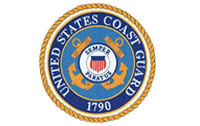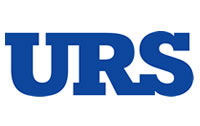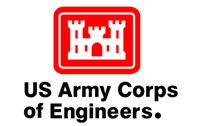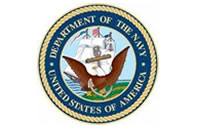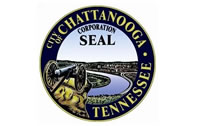One of my favorite movie scenes is found in the movie “Saving Private Ryan,” which was made in 1998. The scene takes place after a harrowing D-Day beach landing at Normandy, France, in 1944. Army Ranger Captain John Miller, played by Tom Hanks, and a hand-selected squad are assigned the task of traversing the French countryside on a dangerous mission to find the only surviving brother among four siblings — Private Ryan. The story was fictional but inspired by a Civil War memorial to eight brothers who died during that conflict.
The scene that is interesting to me is when the men in the squad are walking through a pasture and Private Reiben, a Brooklyn guy with an attitude, asks the leader, Captain Miller, why he never gripes about the assignments he’s given. Captain Miller replies, “Gripes only go up the chain of command, never down. Privates gripe to sergeants, sergeants gripe to captains, captains gripe to majors, majors gripe to colonels and colonels gripe to generals. Gripes always go up, never down.”The captain doesn’t take the bait and with little hesitation replies, “Well, if I were a private and given this mission, I would say this is an excellent mission, with an important objective and that this mission is worthy of my best efforts.”
The rest of the squad smirked and the sergeant said to himself, “He’s good.”
The reason this is one of my favorite movie scenes is that it emphasizes an issue that separates first-rate leaders from those who need more work on their leadership skills. The attitude and commitment projected by leaders is one of the biggest determining factors in the attitude and commitment of the team; it defines potential success or failure of the team.
The mission is defined by senior leaders in an organization. It is projected downward through the organization by the words and actions of the leaders (or non-leaders) that are between the senior leaders and workforce. If there are non-leaders, or weak links, in the chain of command, the message will not be communicated with commitment. When that happens, team members sense that commitment is lacking, and compliance becomes viewed as having less importance at best, and optional at worst. Performance will ultimately fall short of the vision.
If managers or supervisors gripe in the presence of the team members, that is not supportive of the defined mission. They are announcing themselves as weak links to the people under them. The corollary is that, if you are not committed to missions coming down the chain of command, your team will quickly recognize that your influence going up the chain of command will be questionable.
When leaders question the mission, they give their subordinates the green light to question the mission. People will push limits until resistance is encountered. If discontent is not challenged, or worse, if encouraged by a griping leader, it will spread fast. And as the old saying goes, misery loves company.
What Captain Miller’s character was doing in the pasture was to support the mission. He most likely did not wholly agree with the mission and may have questioned the senior officer that assigned the mission to him. However, once the discussion was over, Captain Miller accepted the assignment. As a member of the leadership team, it was Captain Miller’s responsibility to be committed to carrying out the mission to the best of his ability. He was consistent, so that his team could have trust in his leadership.
If the rules are disregarded, there may be severe consequences. Even minor objectives that are not met because of non-commitment will have consequences: inefficiency, lower profitability, potentially leading to outsourcing or closure of less profitable activities.
Senior leaders get paid to make mission decisions and are accountable for the performance of the people under them. They need to trust that the mission and objectives will be communicated with commitment and carried out.
Subordinates should be expected to express their observations and opinions upward, with tact of course. These gripes provide insight into the morale and commitment of team members. When gripes are increasing, it indicates there are probable issues, often resulting in anxiety.
No matter what leadership level you are holding in an organization, accomplish your mission and meet your objectives by only griping upward, never gripe downward.
 Tom Moriarty, P.E., CMRP is president of Alidade MER. He is a former Coast Guardsman, having served for 24 years; an enlisted Machinery Technician for nine years; earned a commission through Officer Candidate School; and retired as a Lt. Commander. During his final year of service, 2003, Tom was selected as the U.S. Coast Guard’s Federal Engineer of the Year; an award sponsored by the National Society of Professional Engineers (NSPE). He is a member of the Society of Maintenance and Reliability professionals, the past Chair of the American Society of Mechanical Engineers (ASME), Canaveral Florida Section, and a member of the ASME Plant Engineering and Maintenance (PEM) Division. He has a B.S. in Mechanical Engineering from Western New England College, and an MBA from Florida Institute of Technology; Professional Engineer (PE) licensed in Florida and Virginia, Certified Maintenance and Reliability Professional, various credentials in management and reliability fields. He can be reached at [email protected]. Tom Moriarty, P.E., CMRP is president of Alidade MER. He is a former Coast Guardsman, having served for 24 years; an enlisted Machinery Technician for nine years; earned a commission through Officer Candidate School; and retired as a Lt. Commander. During his final year of service, 2003, Tom was selected as the U.S. Coast Guard’s Federal Engineer of the Year; an award sponsored by the National Society of Professional Engineers (NSPE). He is a member of the Society of Maintenance and Reliability professionals, the past Chair of the American Society of Mechanical Engineers (ASME), Canaveral Florida Section, and a member of the ASME Plant Engineering and Maintenance (PEM) Division. He has a B.S. in Mechanical Engineering from Western New England College, and an MBA from Florida Institute of Technology; Professional Engineer (PE) licensed in Florida and Virginia, Certified Maintenance and Reliability Professional, various credentials in management and reliability fields. He can be reached at [email protected].
|




